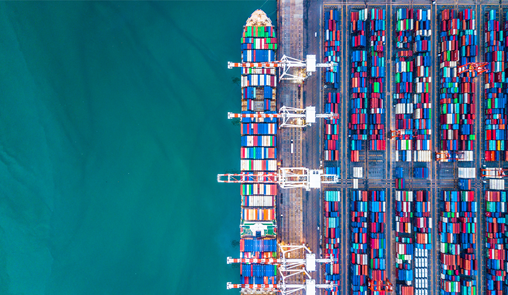Recently, there has been extensive discussion around the scope and extent of the prohibitions included in the Autonomous Sanctions Act 2011 (“the Act”) and Autonomous Sanctions Regulations 2011 (“the Regulations”).
The judgment in Alumina and Bauxite Company Ltd v Queensland Alumina Ltd represents the first judicial interpretation given to two key phrases used in the Regulations – one relating to the concept of a “benefit” being provided to Russia, and one relating to the circumstances in which a person will “…indirectly make an asset available… for the benefit of, a designated person”. In both instances the court favoured a broad interpretation – suggestive that the types of activities captured by the prohibitions are far greater than originally envisaged.
In this newsletter, head of regulatory Alistair Bridges and partner Daniel Moulis use case law to demonstrate why now is the time to check assumptions about your exports and business dealings that may touch and concern world security issues, to ensure you are not wrong-footed.
Joint-ventures and complex problems
Interestingly, this is not a sanctions enforcement case; rather it is a matter of contract law. The facts are complex. The essence of the dispute relates to an alumina joint venture in Gladstone. At this refinery, the first respondent, Queensland Alumina Ltd (“QAL”) supplied and transferred alumina to Alumina Bauxite Company (“ABC”). Additionally, the Rio parties (additional respondents in this case) supplied bauxite to ABC via delivery to QAL at Gladstone. QAL then refined the bauxite into alumina pursuant to tolling contracts with ABC and delivered the alumina to ABC on board vessels used for shipment from the Gladstone port.
In mid-March 2022, the Australian Government began to impose a rolling program of sanctions against Russia. Of relevance, this included identifying alumina and other aluminium ores as “export sanctioned goods” and designating certain Russian businesspeople, with whom dealings were prohibited. The applicants in this matter are subsidiaries of United Company Rusal IPJSC (“UC Rusal”), a Russian aluminium company, in which Oleg Deripaska and Victor Vekselberg have significant financial interests.
There were concerns that continued operation on behalf of the applicants would put QAL at risk of breaching the prohibitions on sanctioned supply and on dealing with designated individuals and entities. QAL invoked a contractual “step-in arrangement”, allowing it to reallocate ABC’s entitlement to refine bauxite into alumina at the Gladstone plant to the Rio parties. QAL also ceased to accept ABC’s bauxite and to refine or deliver alumina to ABC. In addition, the Rio parties ceased to supply bauxite and shipping services to ABC.
The applicants claimed that, in doing so, the respondents breached several contractual obligations. The respondents successfully contested those claims. A key consideration before the court was whether the Russian sanctions rendered performance of the contract illegal, such that there was a supervening illegality that excused compliance from those obligations. This required the court to interpret both the prohibition on sanctioned supply, and the prohibition on dealing with designated entities and individuals.
Who stands to gain from a sanctioned supply?
Regulation 4 deals with the prohibition on “sanctioned supply”. With respect to Russian sanctions, this will occur where a person supplies, sells or transfers export sanctioned goods (such as alumina) to another person and where, as a direct or indirect result, the goods are “transferred to” Russia (or part of Russia), “for use in” Russia (or part of Russia) or “for the benefit of” Russia (or part of Russia).
His Honour found that if alumina had been transferred to ABC after 20 March, it would have been transferred to Russia and would have been used in Russia, and that this would be for the benefit of Russia. All reasonably straightforward. Where things get interesting is his Honour’s consideration of the applicants argument that any alumina would not be transferred to Russia; but rather, to China. His Honour was critical of the evidentiary basis for this argument, but concluded even if it was made out, the transfer of to ABC would still be a sanctioned supply. This was because:
…the supply of alumina to third parties in China would increase the likelihood that surplus alumina in China would be exported to Russia. According to China Customs data, Russia imported approximately 1.1 million tonnes of alumina from China over the 14-month period ending February 2023. Ultimately, those economic factors (of supply and demand) would improve UC Rusal’s security of supply of alumina, its terms of trade in alumina and its profitability. For the reasons stated earlier, those benefits to UC Rusal give rise to benefits for Russia in the form of employment within Russia and increased tax revenue in Russia.
At the heart of this reasoning is a broad interpretation of the concept of “benefit”, which was expressed as follows:
Finally, the word “benefit” as used in subpara 4(1)(c)(iii) is not defined and should be given its ordinary meaning: “anything that is for the good of a person or thing” (Macquarie Dictionary) or “advantage, profit, good” (Oxford English Dictionary). Within its ordinary meaning, the word “benefit” can refer to financial and non-financial advantages. The relevant benefit is of the country that is the subject of the sanction (here, Russia).
So, his Honour interpreted the prohibition as relating not just to the direct consequences of the supply, but also to the likely economic consequences several steps removed from the supply. This is fascinating.
One wonders if the same logic would hold true for the same transaction to China if it did not involve Russian entities. Presumably the same economic factors would be at play, namely the same surplus of alumina and the same flow-on benefits for UC Rusal and Russia.
Indirect owners tied to dealings of the entity they are connected with
Regulation 14(1)(a) of the Regulations prohibits a person from:
…directly or indirectly mak[ing] an asset available to, or for the benefit of, a designated person or entity
In considering this prohibition, his Honour found that the production of alumina by QAL for ABC and the delivery of the alumina to ABC would constitute a dealing with designated persons.
The logic his Honour adopted was that two benefits would accrue to UC Rusal. The first was that it was inferable that the sale of alumina by ABC would have been profitable, thereby increasing the value of UC Rusal. Even if it were the case that alumina was sold to China rather than Russia, the court postulated that this would increase the availability of other alumina in China, placing downward pressure on alumina prices in China. The supply of alumina to third parties in China would then increase the likelihood that surplus alumina in China would be exported to Russia. This would improve UC Rusal’s security of supply of alumina, its terms of trade in alumina and its profitability.
UC Rusal is not a designated entity; but as the judgment indicates, this did not mean much when the ownership of UC Rusal was taken into consideration. His Honour interpreted the Regulations to cover circumstances where a benefit is delivered to designated individuals and entities “through interposed corporate entities, and where the benefit is either the object, effect or likely effect of making the asset available”. As two designated persons, Mr Deripaska and Mr Vekselberg, held effective financial interests in UC Rusal (approximately 25.52% and 12.58% respectively), the requirements were met.
Compliance requires due diligence
Due diligence in these matters is critical. The offence of contravening a sanctions law is one of strict liability. However, a body corporate will avoid liability if it proves that it took reasonable precautions, and exercised due diligence, to avoid contravening that subsection. As can be seen, this requires an understanding of the peculiarities of the provisions of the Act and the broader implications of a transaction.
The court was careful to emphasise that the specific facts must be examined to assess whether the Regulations apply. For example, his Honour acknowledged that there may be a de minimis threshold below which a minority shareholding interest in a downstream company may be insufficient to satisfy the regulatory language for the prohibition on dealing with designated entities.
While Australia’s autonomous sanctions laws align with some degree to those of the US, EU and Canada, there are also significant differences. For example, as a general rule, the EU will extend the application of asset freezing rules to entities whose proprietary rights are directly or indirectly owned for more than 50% by the designated entities;[1] far above the 12.58% identified by the court in this instance.
In the fragmented world security environment in which companies now conduct business, there is no “one size fits all” solution to compliance. To assume differently will invite trouble.
This memo presents an overview and commentary of the subject matter. It is not provided in the context of a solicitor-client relationship and no duty of care is assumed or accepted. It does not constitute legal advice.
© Moulis Legal 2024
[1] https://finance.ec.europa.eu/document/download/3c86c9a8-f09e-4092-ab8c-a9e678df1494_en?filename=guidance-eu-operators-russia-sanctions-circumvention_en.pdf




















